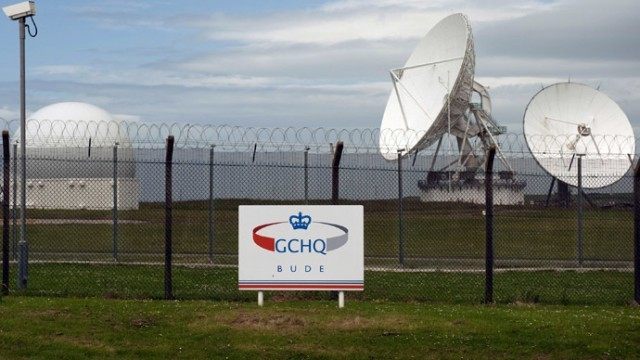Security leaks by CIA contractor Edward Snowden “crippled” Britain’s counter terrorism ability and put lives in danger, a major study has confirmed today.
The theft of the 1.7 million documents from the UK’s Government Communications Headquarters (GCHQ) and the US National Security Agency has had a “profound impact” on security agencies after extremist groups, including Islamic State and Al Qaeda, used them to learn about the spy agencies’ techniques, allowing them to train members to avoid detection.
The report by the Henry Jackson Society says that intelligence agencies find themselves “in a particularly unenviable position: asked to be less intrusive; more transparent; and yet, just as effective,” following the leaks, where secret documents were handed to newspapers, including the Guardian.
The damning report says that at least three al-Qaeda affiliates are known to have altered their communication methods after accessing the information, with online jihadist platforms using new encryption tools after finding out spies were able to break their codes.
In January 2015, a video was released onto a jihadist platform, outlining what jihadists had learned from the Snowden disclosures. It provided advice that included tips on how to avoid detection and listed software packages that protect against surveillance, as well as where this software could be acquired. It also reveals that in June 2014, one British intelligence source said that GCHQ’s ability to track domestic and foreign crime gangs – including those relating to people trafficking and drugs – had been reduced by approximately 25%.
It now takes three times as long to crack the communications of national security targets, the report’s author Robin Simcox reports, with ongoing operations “polluted” by the actions of Snowden.
There is even a fear that hostile states such as China and Russia can now read and adapt the methodologies from the Snowdon files, deploying the UK and the US’s own cyber strategies against them. Indeed, the US government fears that the capabilities of these agencies, including the Russian security services with whom Snowden has had considerable contact, could have accessed the files without him even knowing.
And despite Snowden’s claims that he was revealing the information due to concerns about the state spying on its own citizens, the study, called ‘Surveillance after Snowden’ found that ‘less than 10 per cent has to do with domestic surveillance.’ The permissions which were exposed included the NSA spying on groups such as the Muslim Brotherhood, cooperation with Sweden to gain intelligence on Russia, GCHQ’s intentions to target Turkish and South African diplomats and the location of NSA offices, bases and staff across the world. Crucially, Snowden also revealed that the agency was intercepting then Russian President Dmitry Medvedev’s communications and President Obama’s request for a list of potential foreign targets for US cyber attacks.
Simcox said that the “backlash in response [to the leaks] has been significant.”
“US-based CSPs are now claiming that the UK has no jurisdiction over them and that they are bound by US law,” he writes. “Therefore, if the UK government wants to access content data (for example, e-mails), then it must use the Mutual Legal Assistance Treaty (MLAT) process. This is an unsuitable tool, as it is primarily used in cases where a crime has already been committed, whereas agencies such as the NSA and GCHQ aim to be pre-emptive – disrupting possible criminal activity in the planning stages.”
He concluded that it was “untrue” there was mass surveillance of ordinary citizens or brazenly looking at their emails” and said there needed to be “greater societal acceptance” of the risk that an innocent person’s communications might be accidentally collected by GCHQ and the NSA as they hunt for terrorists.
“Western citizens are generally happy for the state to have an army with sophisticated weaponry because they know that it will not be misused; there is a faith that the checks and balances are sufficient to ensure public safety.
“This same principle should apply to the weaponry given to our spy agencies.”
A UK counter terrorism expert confirmed to Breitbart London the dangers which Snowden’s leaks posed to the Western world.
“It was obvious that Edward Snowden passing details of the modus operandi to terrorists was going to seriously endanger the lives of intelligence staff and the public in general,” he said.

COMMENTS
Please let us know if you're having issues with commenting.